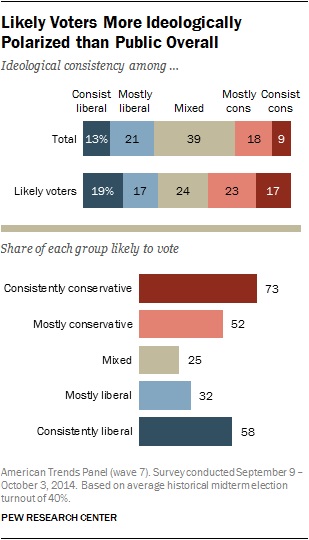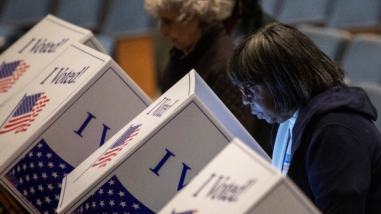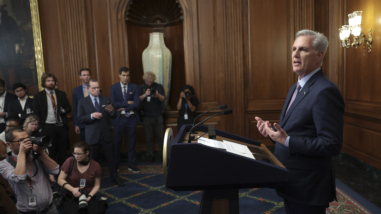Even before voter turnout hit a 70-year low in 2014, many of us in the democracy reform field were in conversation about whether and how we might improve voter turnout, and civic engagement writ large. This, in part, is why the Hewlett Foundation recently announced that we will be partnering with Knight Foundation, the Democracy Fund, and the Rita Allen Foundation on a $3 million challenge to identify how we can better inform voters and increase civic participation before, during, and after elections.
A recent blog post from Knight Foundation elaborates on the goals of this election-focused Knight News Challenge: “We are looking for innovative ideas ranging from new ways that news media and others can inform voters, to making voting easy, efficient and fair, to converting election participation into longer-term civic engagement, on the local, state or national level.”
The challenge opened today, but we have been focusing on these issues for some time. Our Madison Initiative seeks to create opportunities for deliberation, negotiation, and compromise in the US Congress. But it’s clear that civic engagement is an essential component of strengthening representative institutions. Indeed, many Americans opt out of the civic process. As the Pew Research Center reported last year, “[M]any of those in the center remain on the
The Madison Initiative is strictly nonpartisan and agnostic about specific policy outcomes. But we think that representative institutions can be, well, more representative when more of the electorate participates in the process.
For the Hewlett Foundation, this partnership represents a unique opportunity to work with leading peer funders to support new and promising ideas from people across the media, technology, and election administration fields. We hope to see ideas and collaborations from civic technologists, academics, students, startups, nonprofits, governments, and individuals.
Finally, a bit of history and a few fun facts:
- This is Knight’s 13th News Challenge, and they often collaborate with different partners.
- The platform they use for submissions and feedback, available at newschallenge.org, is tailor-made to create a more collaborative, open discussion and process; it’s built on an Open IDEO OI Engine.
- Knight News Challenges attract hundreds of entries but usually result in less than 25 winners.
- Winners receive funding of anywhere from $35,000 to several hundred thousand dollars.
- Past winners have included Internet entrepreneurs, emerging media innovators, libraries, and legacy newsrooms. For example DocumentCloud, which helps journalists analyze, annotate and publish original source documents, is being used by more than 200 newsrooms nationwide. Ushahidi has helped map information in crises from Haiti to Japan. hNews, a project by Web inventor Tim Berners-Lee and the Media Standards Trust, allows readers to see the source of information in online articles. It is used by more than 200 news organizations such as the Associated Press.
The submission process is intended to attract a diverse range of ideas from many different people and organizations. The application questions are simple:
- In one sentence, please describe your idea as simply as possible.
- Briefly describe the need that you’re trying to address.
- What progress have you made so far?
- What would be a successful outcome for your project?
- Please list your team members and their relevant experiences/skills.
See, it’s pretty straightforward.
The News Challenge will open on February 25, 2015, and close on March 19. More information is available on the News Challenge’s website. I have no doubt that the ideas that arise will engage and inspire us all!
To submit an entry for the Knight News Challenge or provide feedback on other submissions, visit newschallenge.org. Knight News Challenge: Elections closes on March 19 at 5 p.m. (EST).




